Cobbles vs Pebbles: How to Choose the Right One for Your Landscape Project?
Both cobbles and pebbles are great additions to any outdoor space. It is impressive how much of an impact such small details can have on a space. Whether you want to add an area of interest in your back garden or want to add a water feature to your patio, cobbles and pebbles will be a must-have.
Pebbles.
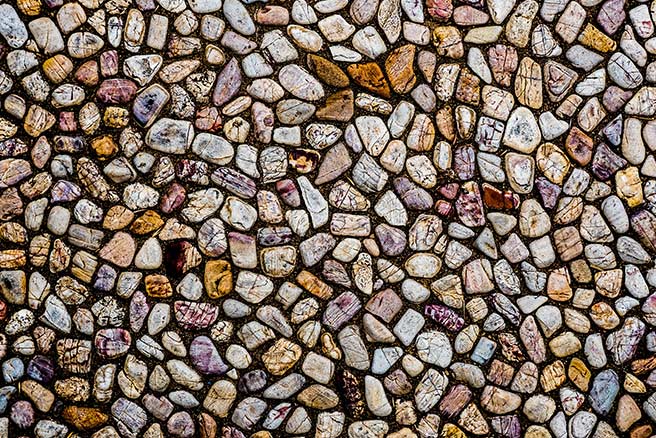
Garden pebbles, pronounced peh-blz, are available in various sizes, colours and shapes. Pebbles, such as Scottish pebbles and Beach pebbles, are often used to decorate gardens and other outdoor spaces.
Are pebbles permeable?
Yes, pebbles are permeable, and thus, will ensure proper water drainage.
Can pebbles be used as mulch?
Mulch is the name given to materials, such as bark and leaves, that are applied to the surface of the soil or over a plant to insulate the soil, conserve moisture, reduce weed growth and more. For a more permanent solution, pebbles can be used as mulch. Pebble mulch can be used in garden beds to protect soil from sunlight and erosion, reducing weed growth.
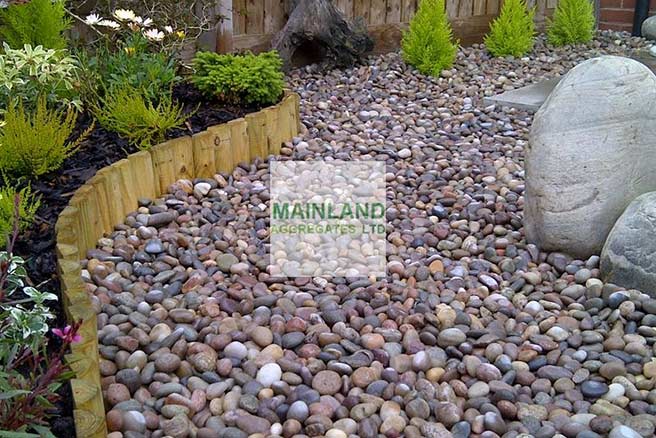
What pebbles to use for plants?
Small pebbles are used on top of plants to improve water retention and aesthetics. Some of the most common types of pebbles used for plants include limestone pebbles, such as Dove grey limestone, and granite aggregates, such as 20mm pink granite chippings.
Limestone pebbles are mineral-rich pebbles that are highly ornamental. However, these pebbles are not ideal for acid-loving plants as they can leach lime and alter soil pH. Granite aggregates require little maintenance and are usually available in pink or red colours. Clay pebbles, dolomite pebbles and natural stone pebbles can also be used for plants. If you are searching for pebbles for gardens or pebbles for plant pots, contact our experts who will be able to give you further advice.
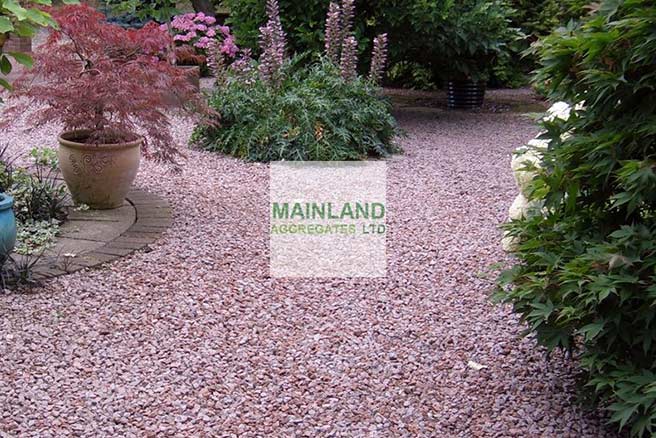
What is the difference between pebbles and cobbles?
Pebbles and cobbles differ in size. According to Britannica, pebbles range from 0.16 inches to 2.52 inches whilst cobbles range from 2.52 inches to 10.08 inches.
Cobbles.
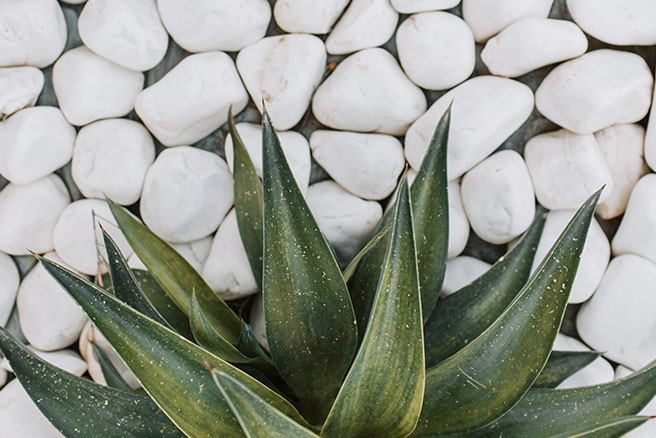
Sometimes referred to as cobblestones or river rocks, cobbles are round and smooth rocks that are larger than pebbles but smaller than boulders. Cobbles are often used to pave paths and roads.
What stone are cobbles made from?
Cobblestones are often collected from riverbeds and streams, where the constant flow of water gradually gives them rounded edges.
Are cobbles slippery?
Wet cobblestones are quite slippery. Keep this in mind when considering suitable aggregates for your landscaping project.
Where to buy cobbles?
Are you searching for “cobbles for garden” or “cobbles for driveway”? At Mainland Aggregates Ltd, we supply a wide selection of cobbles that are suitable for various applications. Within our range of cobbles, we stock Scottish cobbles and large white cobbles.
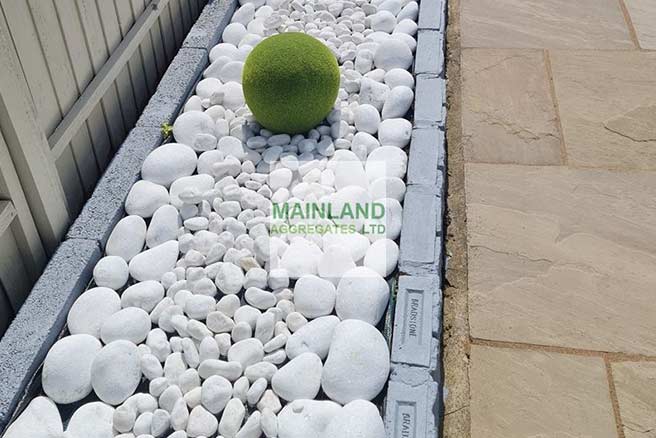
Should I use cobbles or pebbles for my landscaping project?
Cobbles and pebbles offer the same benefits, including improving water retention, ensuring proper drainage, versatility and low maintenance. Both types of aggregates can be used to make mosaic paths, rockeries, water features, walkways and more. Explore our full range of cobbles and pebbles to see which aggregate would better suit your project.
Why not use both? The best of both worlds is to use both cobbles and pebbles as part of your project. By using different sized aggregates, you will give your outdoor features another level of depth, texture and a more visually interesting look. For professional advice, feel free to contact our team. We can be reached on mobile on 01234 831 108 or by email at info@mainlandaggregates.co.uk.
